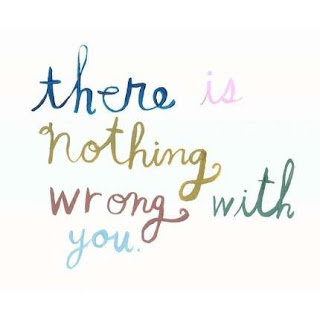 "Anyone desperate enough for suicide...should be desperate enough to go to creative extremes to solve problems: elope at midnight, stow away on the boat to New Zealand and start over, do what they always wanted to do but were afraid to try."
"Anyone desperate enough for suicide...should be desperate enough to go to creative extremes to solve problems: elope at midnight, stow away on the boat to New Zealand and start over, do what they always wanted to do but were afraid to try." Richard Bach
Suicide is a hot topic right now. There's been a rash of teen suicides in the U.S. that are being connected in the media, and in many people's opinion, with bullying.
I maintain the unpopular and challenging opinion that healthy people do not commit suicide. Even when the situations in their lives appear bad, or even hopeless, psychologically health people seek different alternatives.
Acknowledging that this is uncomfortable for many people, let me also say that placing blame is one way to make sense out of what feels to many to be a senseless act. We want to know "why". It is a basic human need. We want to make sense out of things that are difficult. How many times have we all heard someone say, "If would all be easier, if I could just understand..."?
It's easier to blame something bullying than to try to understand why someone felt that killing themselves was their only option. Bullying is wrong. People who bully are bad. If the bullying was the final stressor in a series of stressors that pushes someone over the edge, so to speak, then we can feel good about blaming the bullies for the suicide.
But...
There is one problem with this logic. The bullies aren't the ones who pull the trigger, or swallow the pills, or open the vein.
If someone decides to rob a bank because his friends repeatedly taunt him and egg him on society still holds the bank robber responsible for his actions. We each have choices. We choose to seek help or succumb to bullying or torment or financial stressors. People choose their fate. They choose to live or die.
The bully does not make that choice for them. THEY choose for themselves.
With that being said, there are factors that make reasonable choices about suicide more difficult. Being a child or teenager is one of them. Adolescent brains do not have the impulse control abilities of a fully mature brain. What that means is that adolescents have a harder time stopping themselves from doing things, especially when those things relate to peers, or coincide with heightened emotional states.
Ok, once again, adolescence + heightened emotions + peers = bad judgement.
Add a brain injury into that mix and you've got a recipe for disaster.
Brain injury often affects something called "Executive Function". Executive Function is the brain's decision making ability. Brain injury can also damage impulse control and other areas of behavior and emotional regulation.
Do you see how any of these symptoms can make a bad situation infinitely worse when dealing with multiple external stressors (bullying, death in the family, poverty, legal issues, etc.).
The following article is about the suicide death of a football player who, after autopsy, was found to have suffered repeated brain injuries.
http://www.cnn.com/2010/HEALTH/09/14/thomas.football.brain/index.html?hpt=C2So what's the answer? I don't pretend to know. Perhaps there isn't one. However, I am suggesting that subtle brain injuries are very likely behind some of the adolescent behavior which adults find distressing like AD/HD, ODD, Depression, and Suicidality. I am suggesting that people, especially adolescents, with a known Brain Injury should be monitored differently than uninjured people.
I am suggesting that these injuries can, in some people, create a perfect storm of depression, hopelessness, frustration and impulse control and can end in suicide.
I am also suggesting that there is always more than one reason why someone commits suicide, and the easy answers aren't necessarily the best, or most illuminating.









